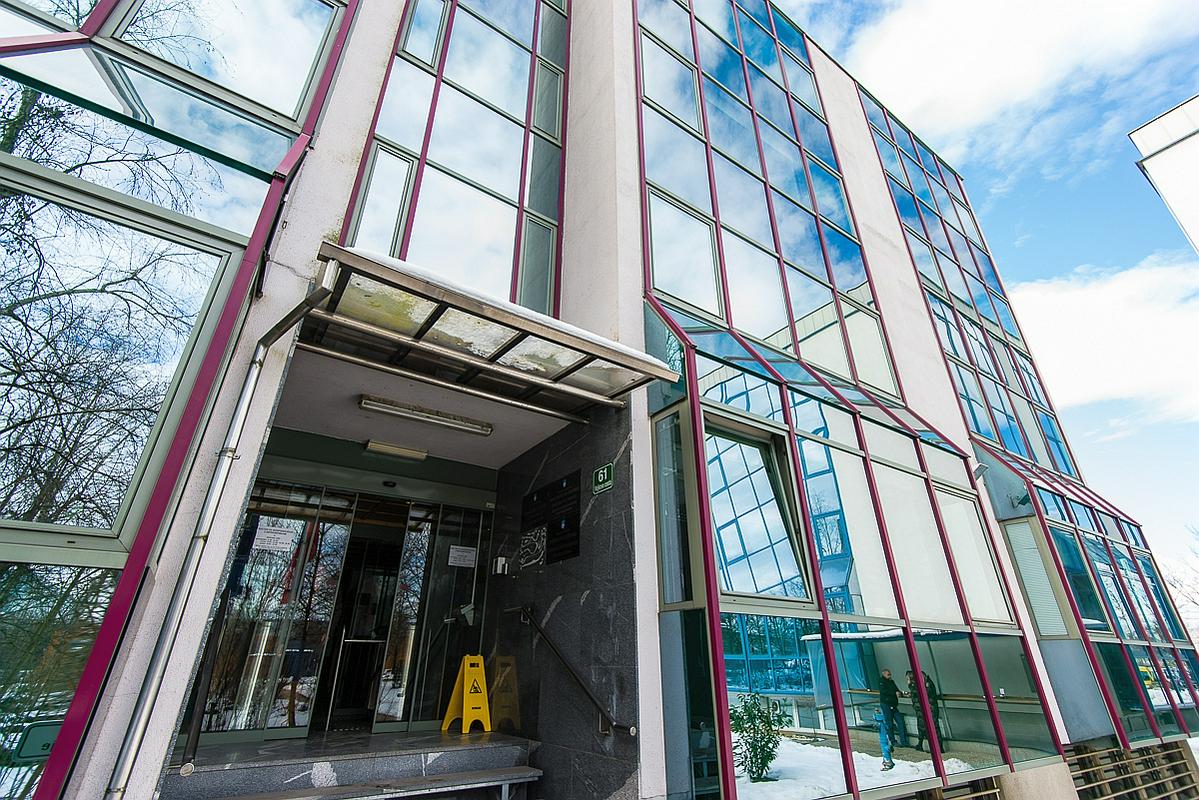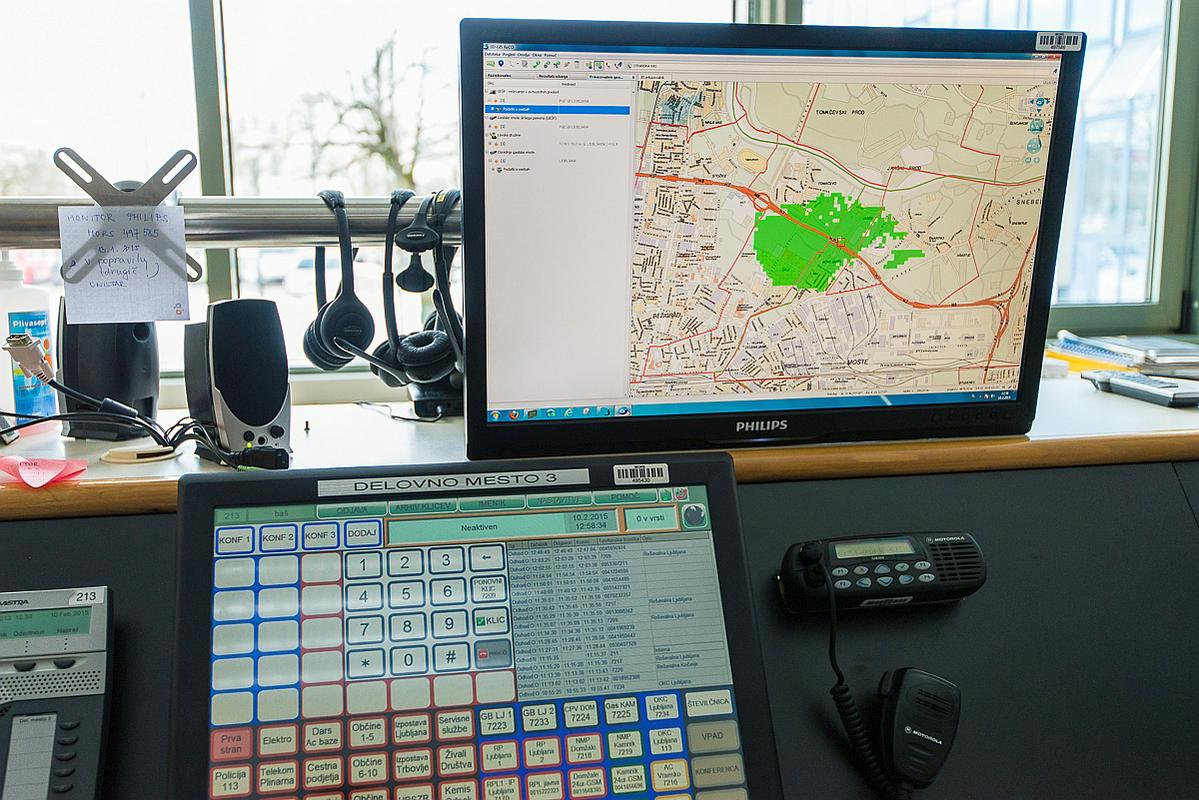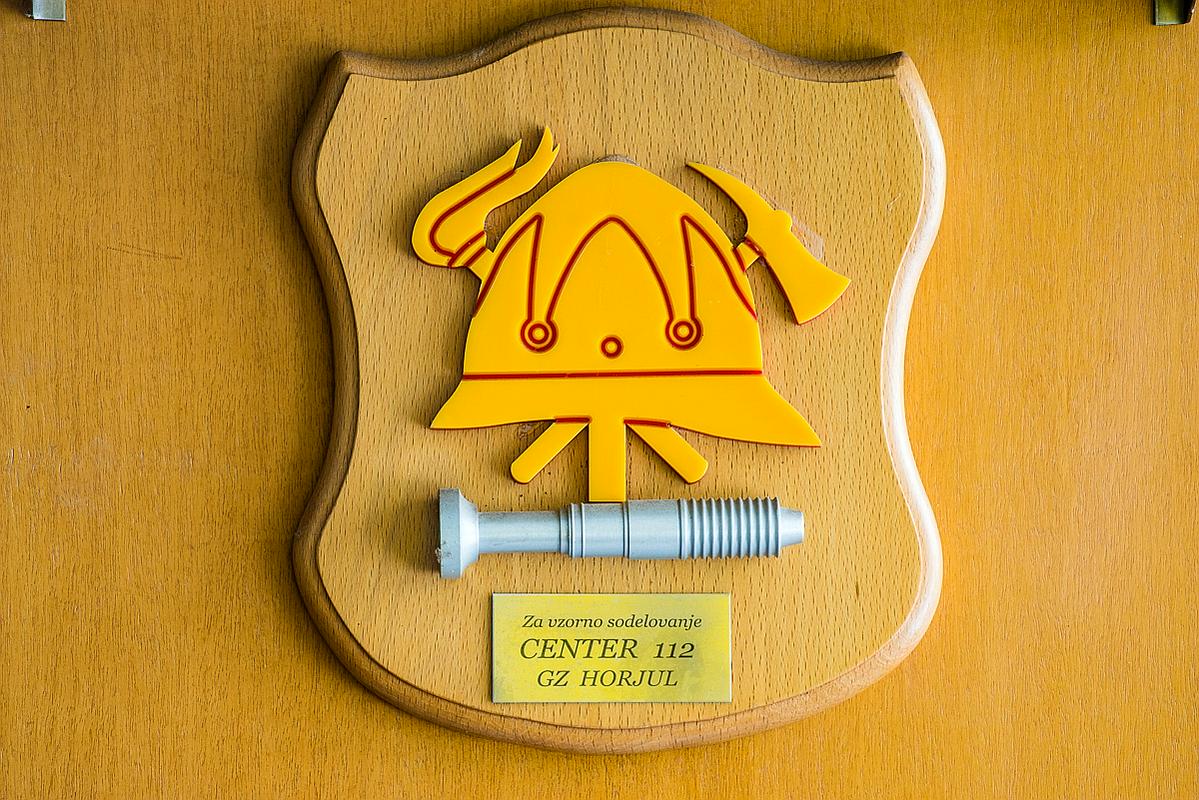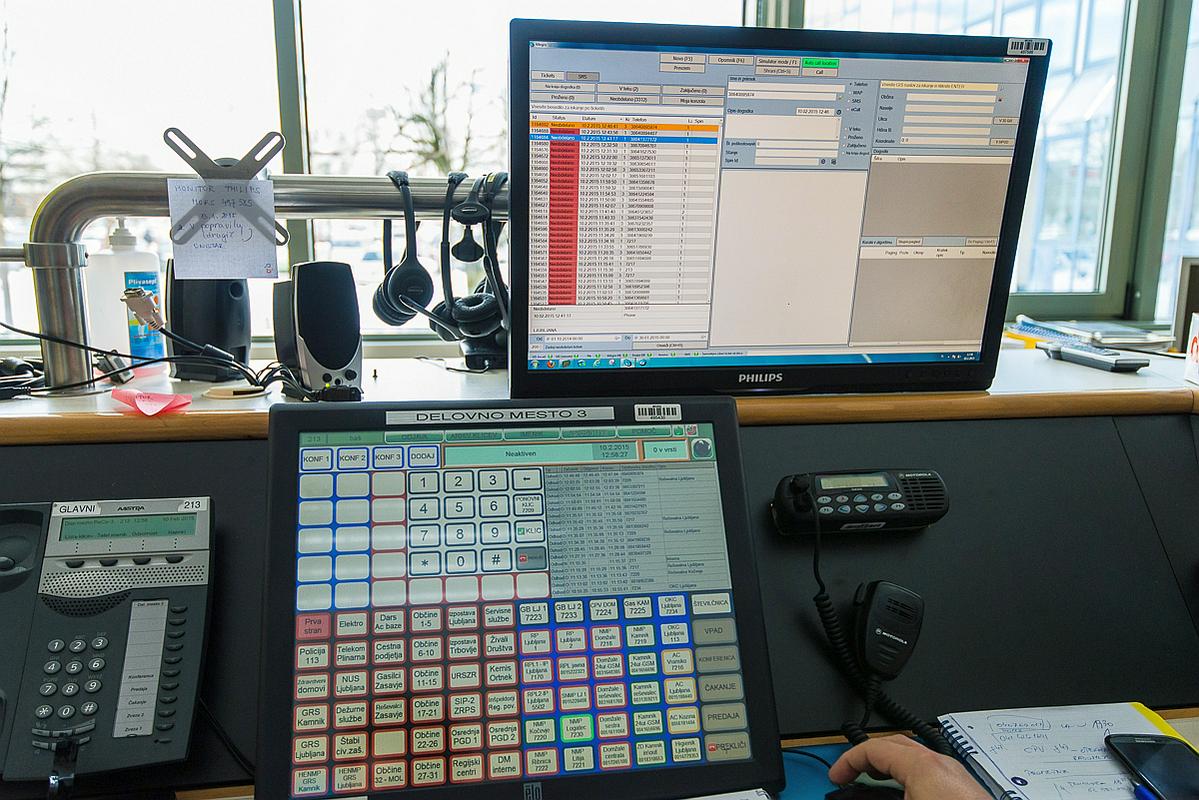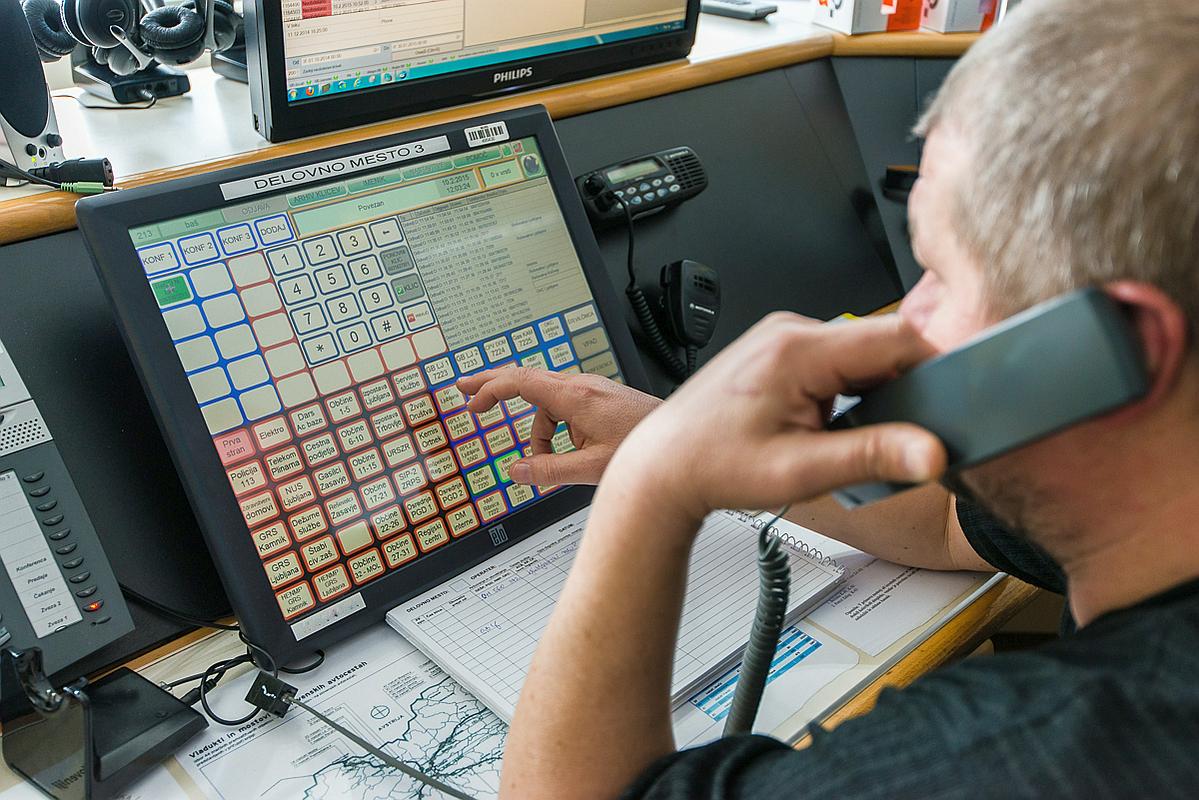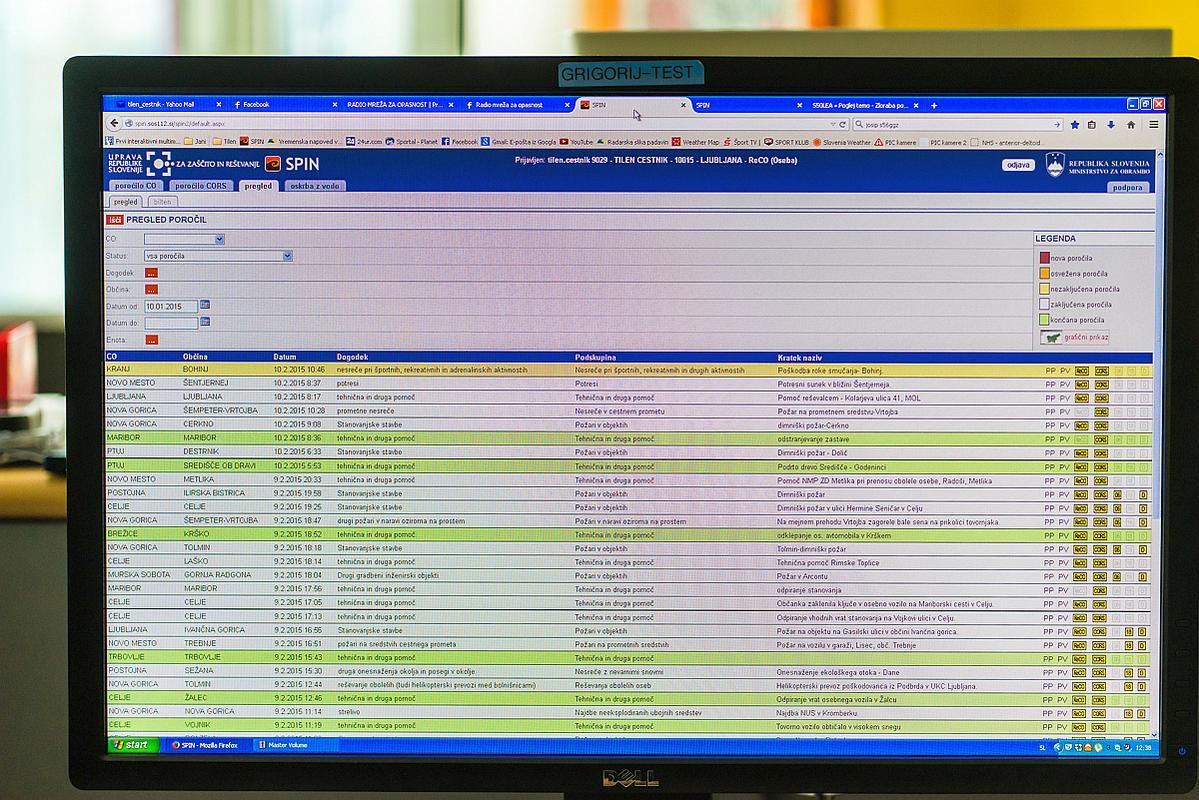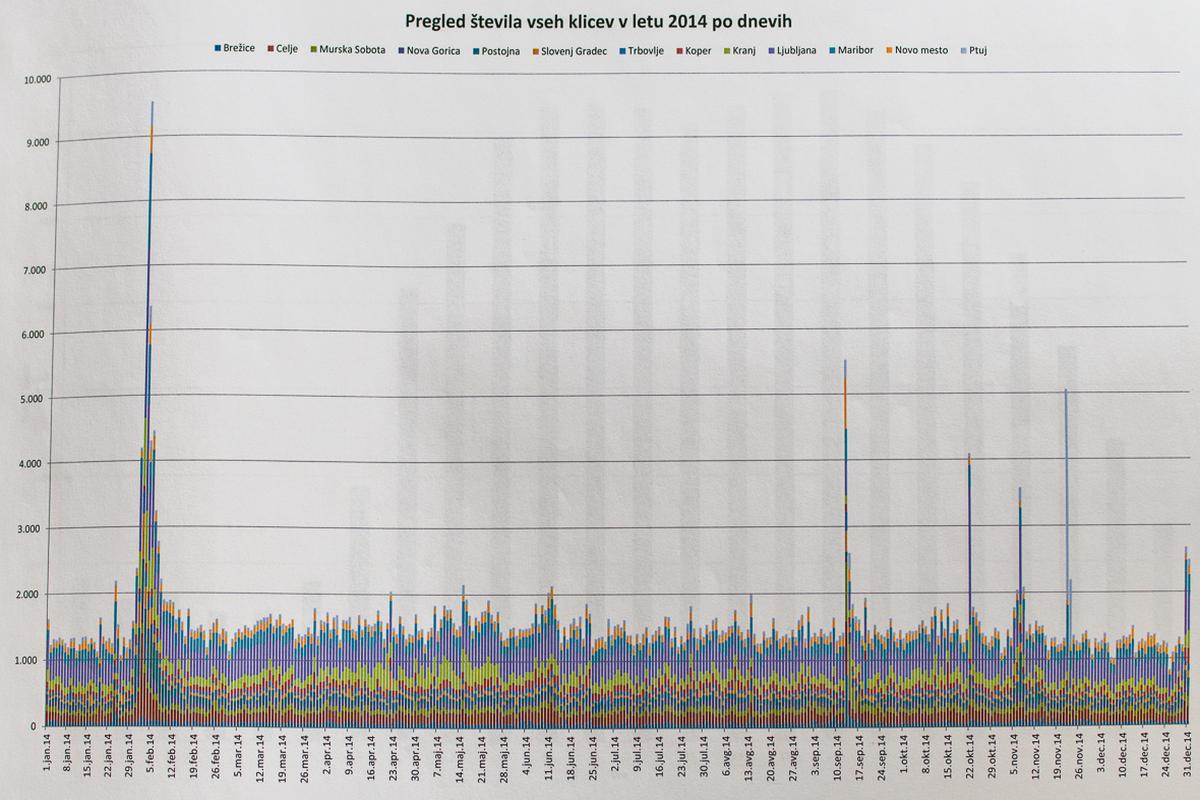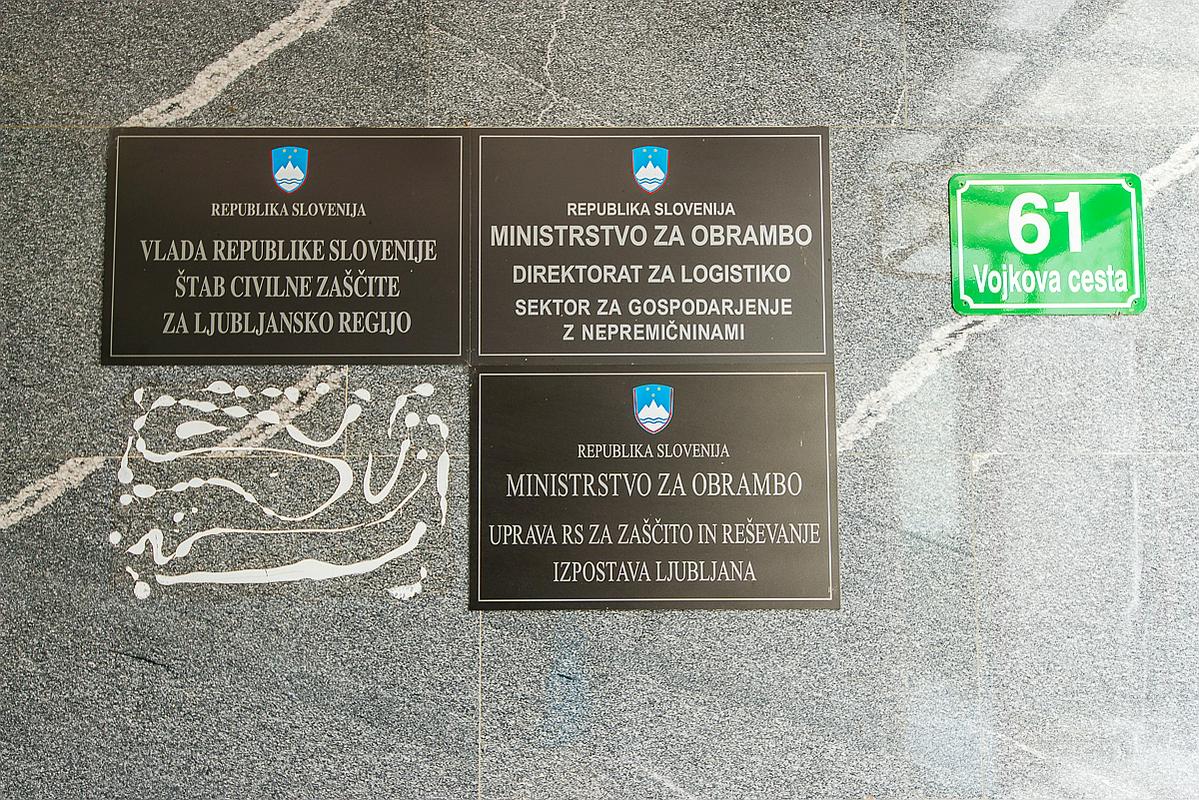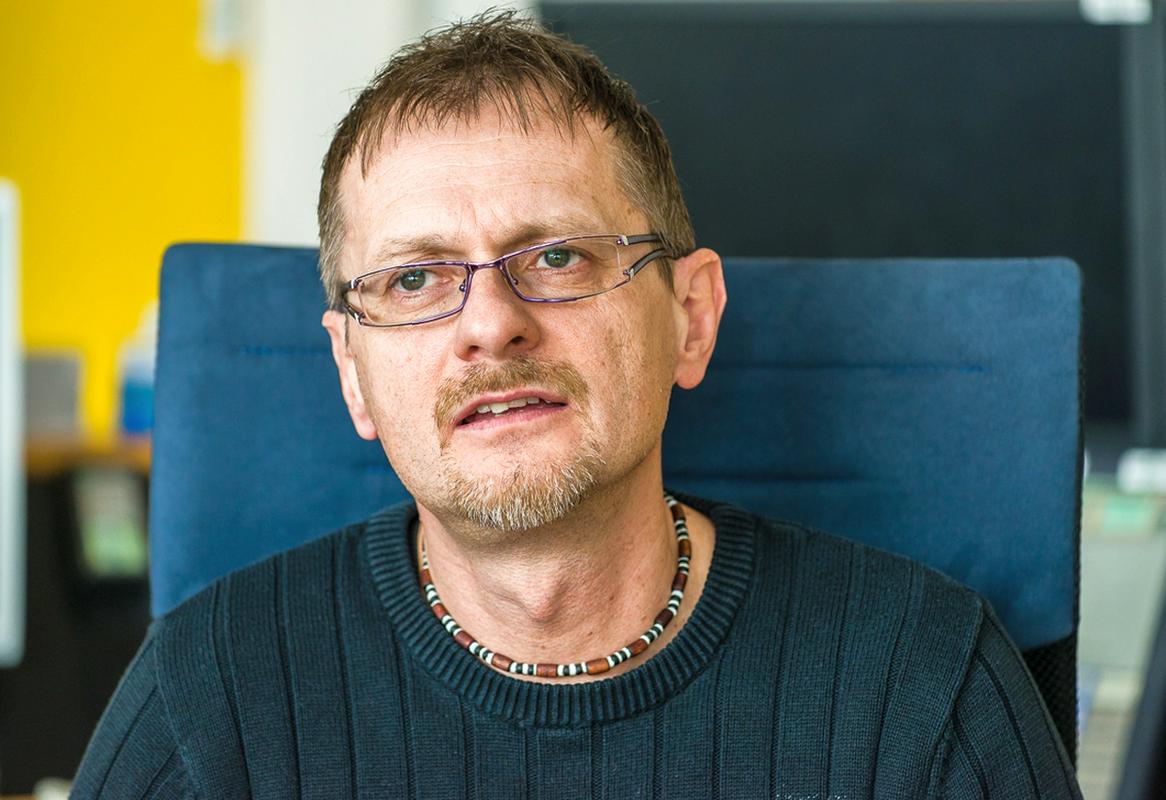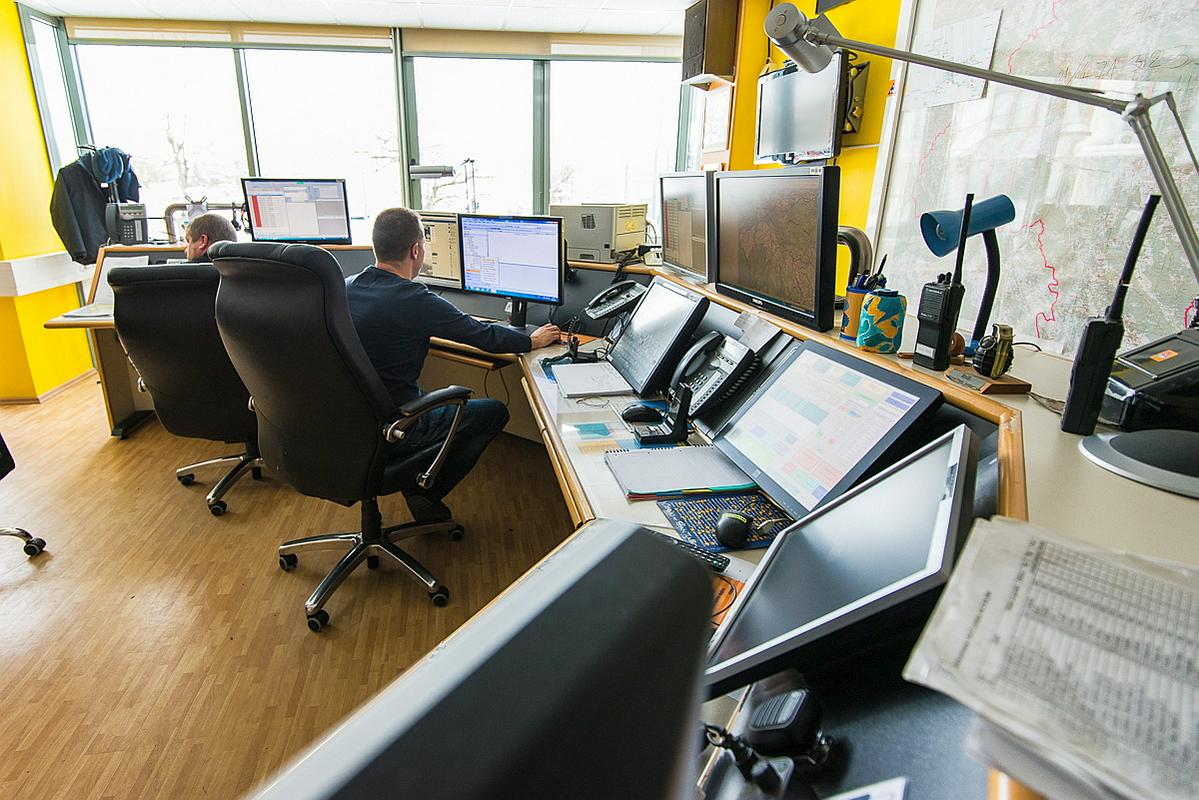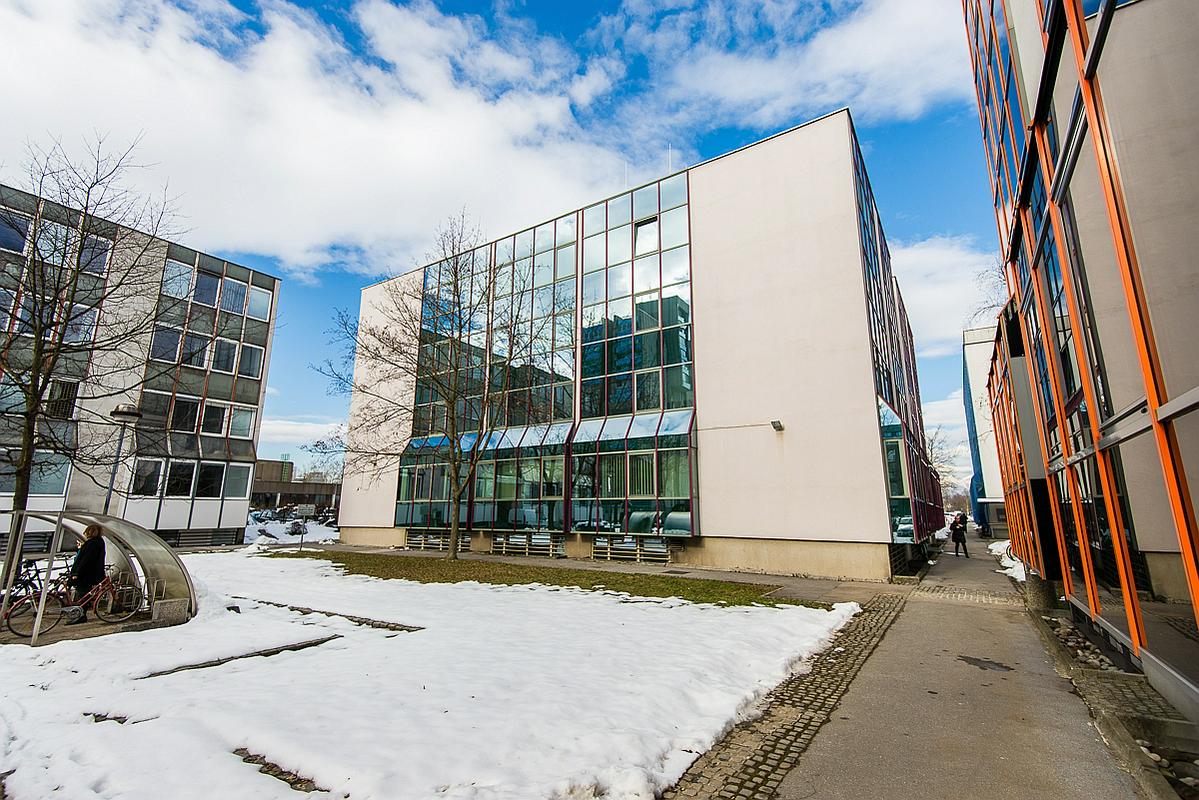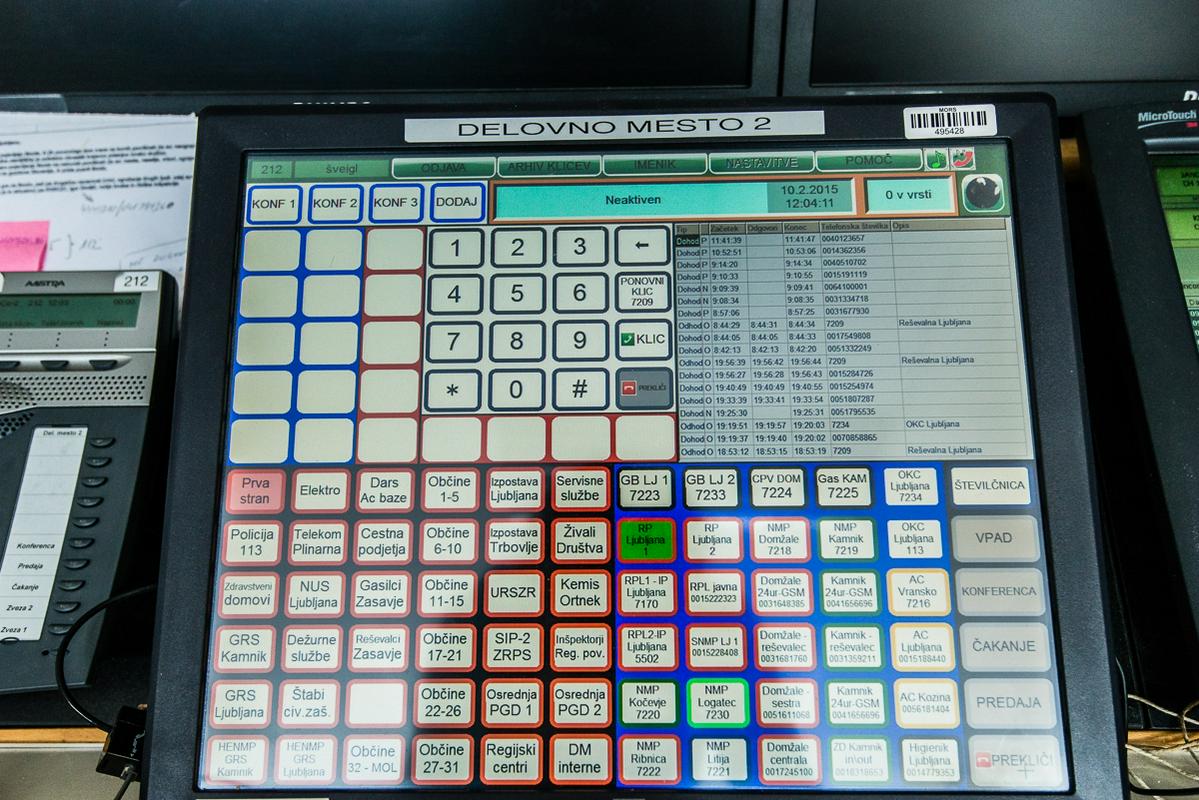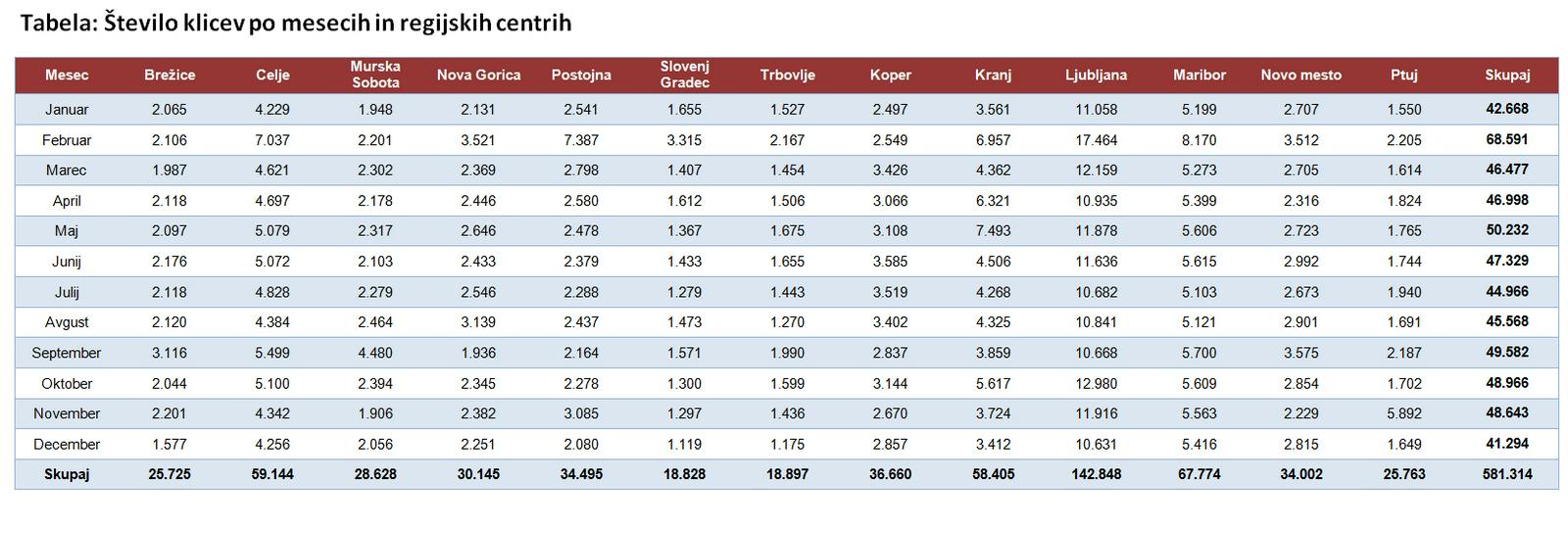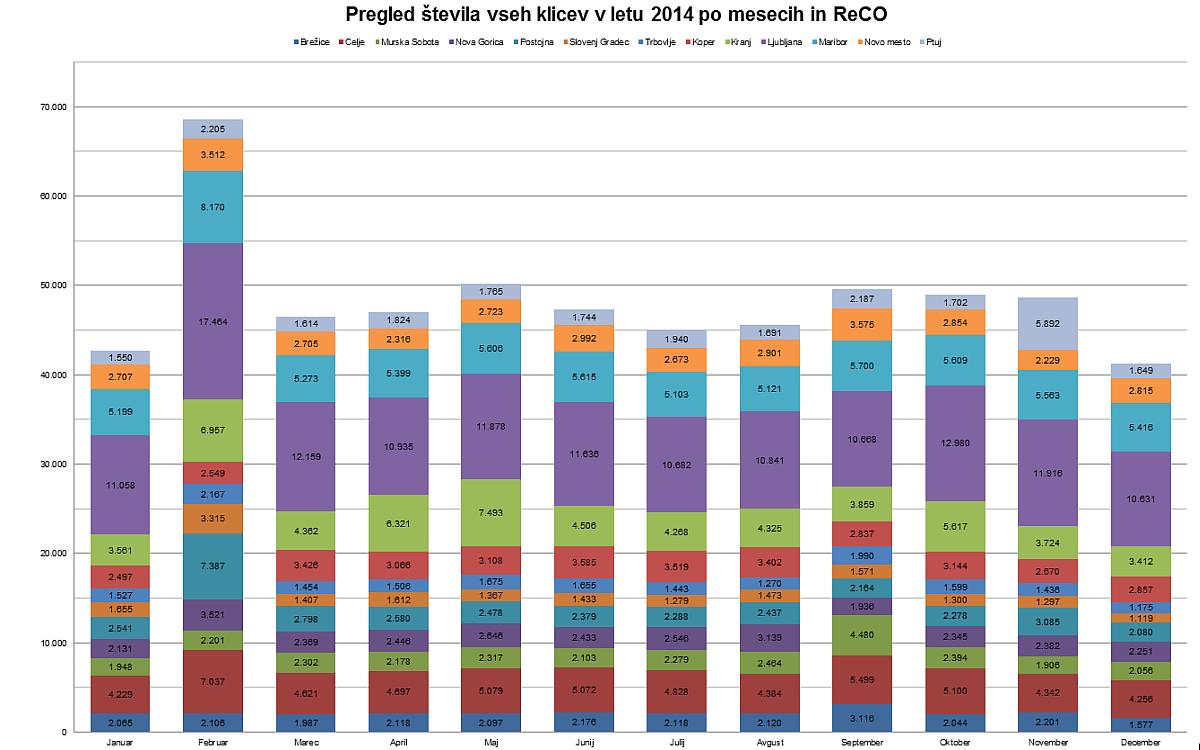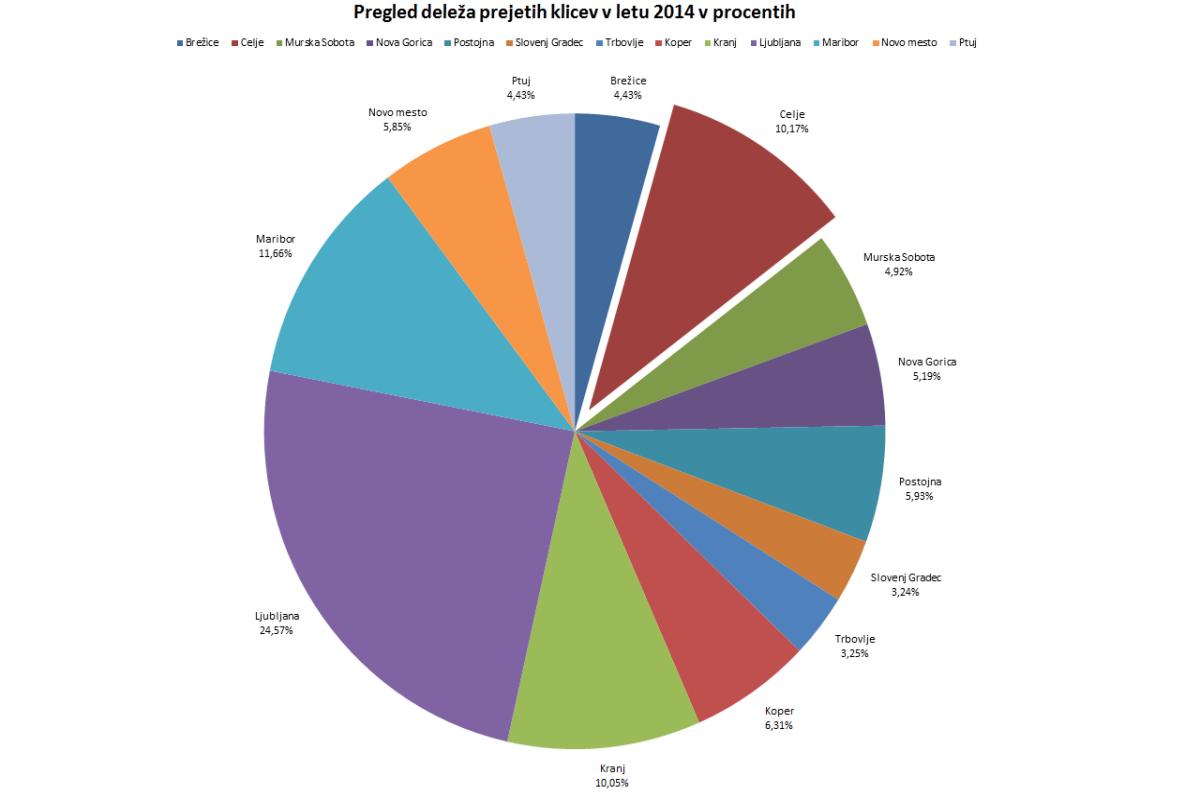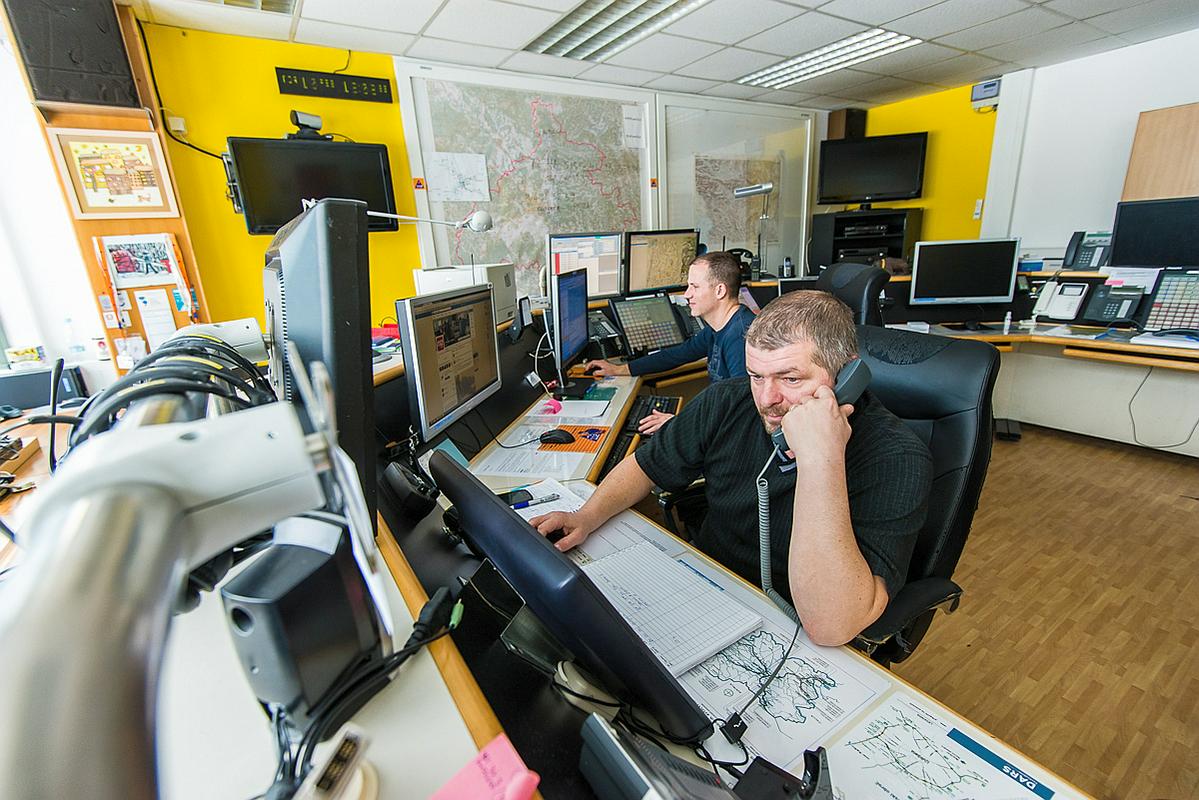
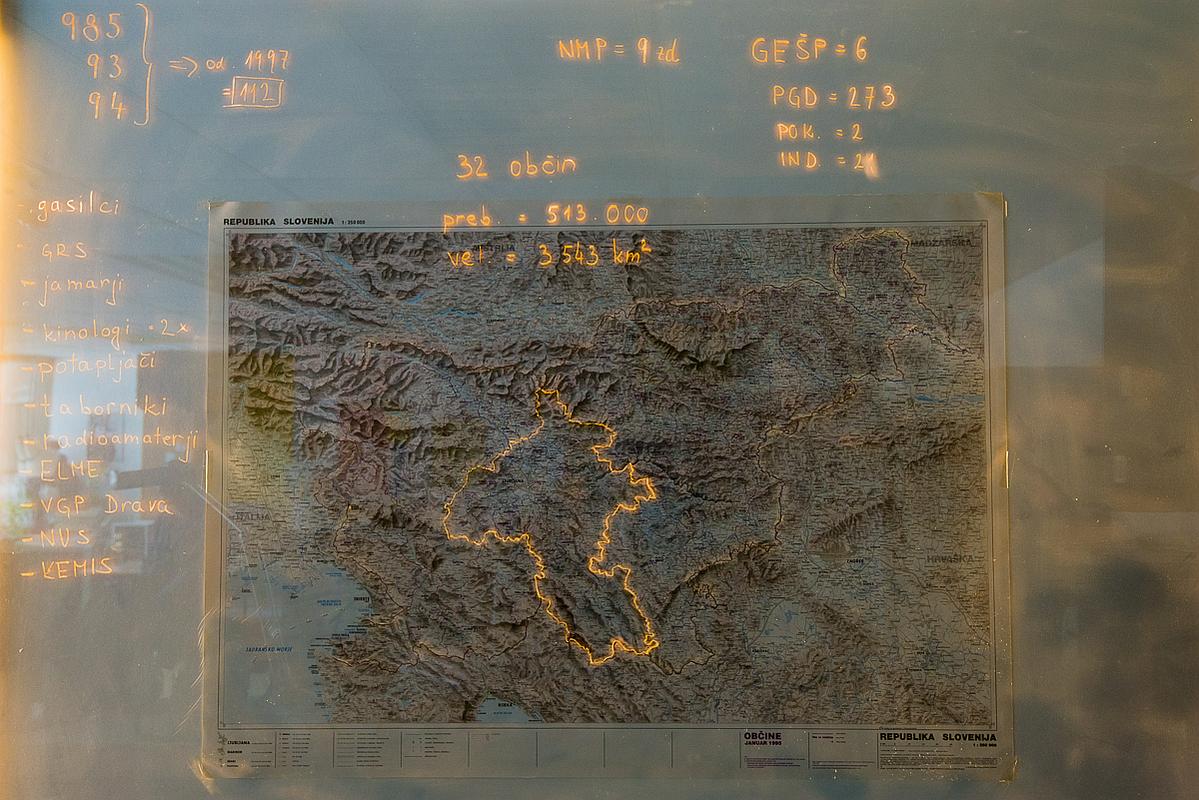
!0 operators are working in the Ljubljana Notification Centre (ReCO), one of them female. Boštjan Tavčar, who acted as a guide for the hour the photographer and I spent at the centre, explained that they work 12 hour shifts, and that there are at all times two operators in the call centre, 24 hours per day. The shift starts at 8 a.m., the morning and night shifts alternate, followed by two days of rest.
Phone conversation must be as short as possible
The work of an operator requires certain psychophysical abilities due to the stressful situations which require instantaneous reactions. "The situation can change from peaceful to a state of siege in a moment, and the operators must then react calmly, and follow the procedure," Tavčar explains. It means that at first they must obtain all the necessary data: who is calling, where from, what has happened, to whom, and how many casualties there are.
"It is crucial to keep the call as short as possible. Last year the average for 90 % of the calls was less than 70 seconds," Tavčar said. They would like the calls to be of even shorter duration, as in that way the phone lines would remain free. The largest number of calls referred to emergency medical help, followed by the calls requesting the assistance of the Police, and the third most frequent calls asked for the help of the firefighters.
The so-called empty calls are rare – meaning the calls where the caller disconnects even before the operator answers, and those are not documented. Occasionally somebody makes a call as a practical joke, but the biggest problems are caused by false calls, which are punishable, since they congest the lines while there might be help needed elsewhere, or a life threatening situation might occur. But luckily there were only 20 of such false calls from more than 100,000 real calls for assistance.
Long lasting extraordinary events are a big problem
When something of larger extent happens, e.g. sleet and floods we had last year, the team of operators must be reinforced, as the number of calls increases substantially in a very short period. During floods they accepted 6,000 calls in 24 hours, instead of the average 500 per day. Tavčar admits that they would be facing a big problem in case of a long lasting extraordinary event, as they simply don't have enough operators to keep the call centre fully staffed for 24 hours a day.
The operators must also take care to keep the lines open in case of an extraordinary event, as for example at the occasion of the hot-air balloon accident in 2012. They must inform the caller that they had already been informed of the accident, but still they have to accept all the calls, as it might happen that a call refers to another, unconnected event.
Janez, one of the operators, explains that their primary duty is to inform paramedics, firemen, or other intervention services, depending on the type of the accident. There are precise plans, protocols, for each of the municipalities in ReCo jurisdiction, defining whom to call, and the order of succession. There are 32 different protocols for 32 separate municipalities, Janez says.
Atypical day is a norm
The ordinary day starts at 8 a.m., and the work place must never be left unattended. There must always be a person manning the phones, as every call must be answered. After answering the call they look up on the screen the contact data of the person in charge of the problem (roads, public utilities, emergency services, electric company, municipality …) and hand over the matter.
But while the phones are congested during natural disasters, people can be rather indifferent in other cases. Lately, during the crises, people have changed their way of communicating, and their frequent reaction is 'I am the one paying, so you should do it', Tilen, another operator, describes the problem. They had the cases where a person called to report an accident, and when asked if there were any casualties, answered: "I don't really care, you solve it."
The culture of reporting accidents is missing, believes Janez. In favour of his opinion speaks the fact that they have received only two phone calls after a traffic accident; the car overturned, and three people remained wedged in the car stopped on its roof. "The accident happened on the road Ljubljana-Kočevje, and everybody knows there a car drives by every 15 seconds," he says, outraged. Gathering data on an accident, which is similar to putting together a mosaic, is of crucial importance for saving lives; only after piecing together all the details they are able to call for the suitable help, warns Tilen. And the phone rings again – a trailer filled with manure overturned at a crossing. Bizarre, but true.




















































